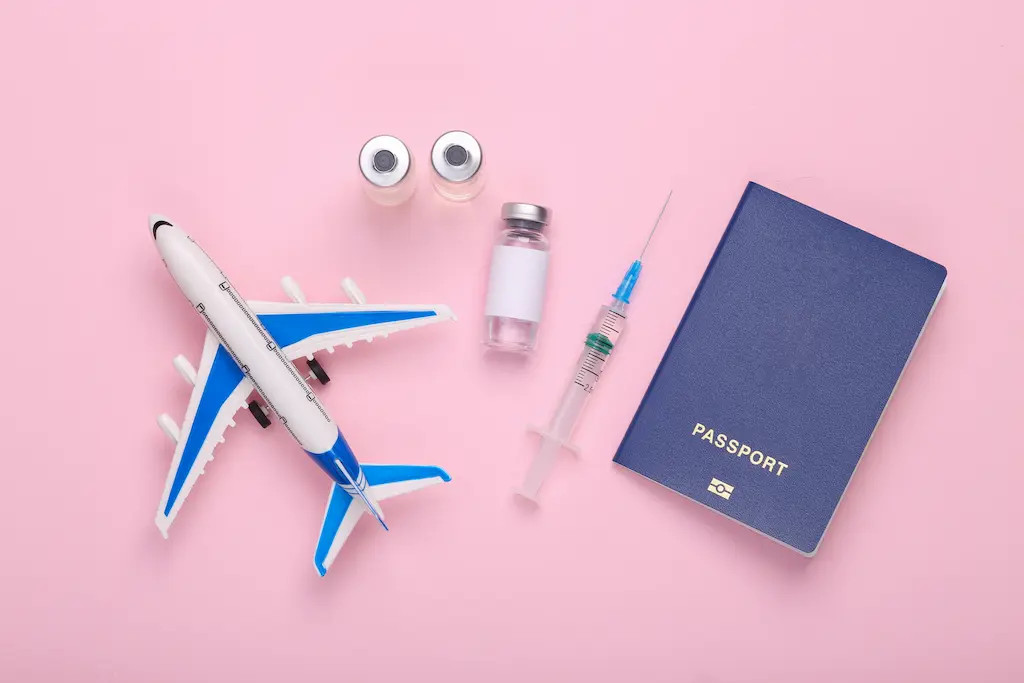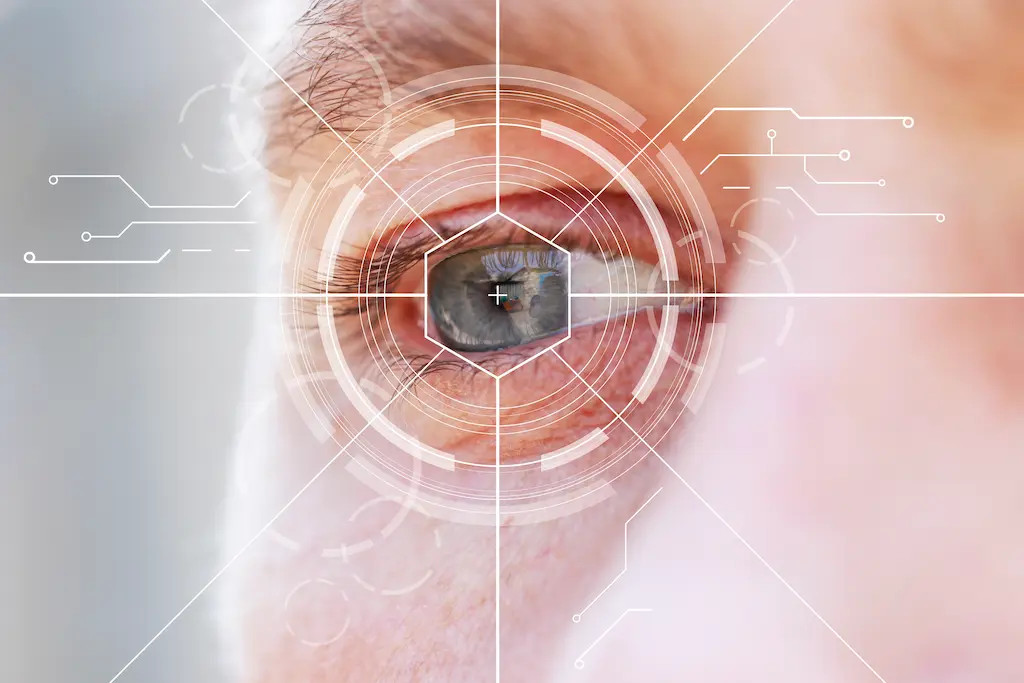Can you fly after cataract surgery? Absolutely, most individuals can fly without issues after cataract surgery. At flyermedia.net, we understand you’re keen to resume your travel plans, and we’re here to provide you with the essential information. To ensure a safe and comfortable journey, it’s important to consult your ophthalmologist for personalized advice. We’ll address the recovery timeline, post-operative care, and tips for a smooth flight.
1. Understanding Flying Post-Cataract Surgery
Generally, flying after cataract surgery is permissible, whether it’s traditional or laser-assisted. No strict medical restrictions typically prevent air travel following the procedure. However, an important exception exists for those who have undergone detached retina surgery involving gas bubble injection. Pressure changes during flights could cause the gas bubble to expand, potentially leading to serious eye complications. It is essential to get clearance from your doctor confirming the gas bubble has dissipated before flying. Post-operative care and the dry environment are crucial factors to consider for a comfortable trip.
2. Addressing Dry Eyes After Cataract Surgery
Cataract surgery can sometimes lead to dry eyes. This can be attributed to the Betadine antiseptic used during the procedure and the preservatives in post-operative eye drops, which can cause irritation. According to a study published in the “Journal of Cataract & Refractive Surgery,” approximately 20% of patients experience dry eye symptoms after cataract surgery. Other contributing factors may include decreased tear production, incomplete eyelid closure, or disruption of the ocular surface during surgery.
 Close-up of a person's eye, potentially showing signs of dryness or irritation after cataract surgery.
Close-up of a person's eye, potentially showing signs of dryness or irritation after cataract surgery.
Dry eyes can manifest as burning, aching, a gritty sensation, and blurred vision. These symptoms increase the likelihood of scratching or rubbing your eyes, which elevates the risk of infection. As the air on an airplane is drier than usual, your eyes may feel more uncomfortable during a flight. To minimize discomfort, use artificial tears frequently. For severe cases, consulting your doctor about dry eye therapy may be necessary.
3. The Importance of Post-Operative Care
Attending all scheduled follow-up appointments with your ophthalmologist is crucial after cataract surgery. Typically, you’ll need to visit your surgeon the day after the procedure and again within the following two weeks. These appointments allow your doctor to assess your progress and identify any potential complications. According to the American Academy of Ophthalmology, regular follow-up care significantly reduces the risk of post-operative complications.
If you’re planning a trip shortly after surgery, inform your doctor and coordinate your appointments around your travel schedule. Adhering to your surgeon’s post-operative instructions is also essential, including using prescribed eye drops and wearing a sleep mask to protect your eyes. If you have concerns about traveling or resuming activities soon after cataract removal, consult your surgeon for personalized advice.
4. Travel Insurance Considerations
Cataract surgery generally doesn’t impact travel insurance coverage. However, it’s always prudent to verify your specific travel insurance policy or contact your provider to confirm any restrictions or exclusions. Some policies might require a minimum waiting period between cataract surgery and the start of your trip to be eligible for coverage. Additionally, some policies may exclude medical expenses related to cataract surgery.
5. Assessing Medical Access During Travel
In most cases, your eye should feel relatively normal within 24 hours after surgery. However, sensitivity to light might persist for a few additional days.
 A close-up of a medical professional examining a patient's eye, highlighting the importance of accessible medical care.
A close-up of a medical professional examining a patient's eye, highlighting the importance of accessible medical care.
The typical cataract surgery recovery time spans four to six weeks. During this period, maintaining cleanliness and lubrication is crucial for promoting healing. Activities should be limited to allow your eye to rest adequately. Infections are rare, but symptoms such as worsening vision, redness, or pain should be addressed promptly to prevent permanent vision loss.
If an infection occurs, seeking professional ophthalmology care is essential, which is generally accessible in well-developed cities. When recovering from cataract surgery, it’s advisable to avoid remote areas with limited access to medical care.
6. Combating the Dry Plane Environment
As an airplane ascends, the air outside becomes thinner, which is why cabins are pressurized. The humidity at flight altitude is typically less than 1%, resulting in extremely dry air circulating within the cabin. This dryness can exacerbate dry eyes and skin. Moreover, traveling can disrupt your routine, potentially leading to decreased water intake, unhealthy eating habits, and inadequate sleep, all of which can contribute to dry eye symptoms.
7. Essential Tips for Flying After Cataract Surgery
When discussing your travel plans with your eye surgeon or ophthalmologist, consider the following guidelines:
- Understand Expectations: Ask about potential post-surgery symptoms to differentiate between mild and severe issues.
- Consider Staying Home: Stay home for a few days or as long as your doctor advises in case of complications.
- Attend Follow-Up Appointments: Ensure your doctor can monitor your healing progress.
One of the most effective ways to alleviate mild dry eye symptoms during a flight is to use artificial tears frequently. Opt for preservative-free artificial tears to minimize irritation, and administer them hourly if necessary.
Additionally, consider these tips:
- Take Naps: Sleeping on the plane can prevent your eyes from drying out.
- Stay Hydrated: Drink plenty of water throughout your journey to combat dehydration.
- Adjust Air Vents: Close the air vent above your seat to reduce the flow of dry air towards your eyes.
8. Choosing the Right Time to Fly After Cataract Surgery
Determining when you can fly after cataract surgery involves multiple factors and considerations. It’s a decision that should be made in consultation with your ophthalmologist, taking into account your individual healing process, potential risks, and the specific requirements of your travel plans. While general guidelines exist, there’s no one-size-fits-all answer, and it’s essential to prioritize your eye health and safety.
Immediate Post-Operative Period (First 24-48 Hours)
In the immediate aftermath of cataract surgery, it’s generally recommended to avoid flying if possible. The first 24 to 48 hours are crucial for initial healing and stabilization of the eye. During this time, your eye may be more vulnerable to complications such as infection, inflammation, or increased intraocular pressure.
Flying shortly after surgery can exacerbate these risks due to factors such as changes in cabin pressure, dry air, and potential exposure to environmental irritants. It’s best to allow your eye some time to recover and stabilize before subjecting it to the stresses of air travel.
Short-Term Recovery (First Week)
During the first week following cataract surgery, you’ll likely have follow-up appointments with your ophthalmologist to monitor your progress and assess for any complications. If your doctor gives you the green light to fly during this period, it’s essential to take certain precautions to protect your eye and minimize discomfort.
These precautions may include using artificial tears frequently to combat dry eye, wearing protective eyewear to shield your eye from irritants, and avoiding activities that could strain or injure your eye. It’s also advisable to carry a copy of your medical records and contact information for your ophthalmologist in case you need medical assistance during your travels.
Long-Term Recovery (Weeks to Months)
In the weeks and months following cataract surgery, your eye will continue to heal and stabilize. As your vision improves and your eye becomes less sensitive, you may feel more comfortable flying and engaging in other activities. However, it’s still essential to follow your ophthalmologist’s recommendations and guidelines to ensure a smooth recovery.
Even if you feel fully recovered, it’s wise to take certain precautions during air travel to protect your eye and maintain optimal comfort. These precautions may include using lubricating eye drops, avoiding rubbing or touching your eye, and staying hydrated to prevent dry eye.
9. Preparing for Your Flight: A Checklist
To ensure a smooth and comfortable flying experience after cataract surgery, it’s essential to prepare in advance and take necessary precautions. Here’s a checklist to help you get ready for your flight:
Consult Your Ophthalmologist
Before making any travel plans, schedule an appointment with your ophthalmologist to discuss your upcoming flight. Your doctor can assess your eye’s condition, provide personalized recommendations, and address any concerns you may have.
Follow Post-Operative Instructions
Adhere to all post-operative instructions provided by your ophthalmologist, including using prescribed eye drops, wearing protective eyewear, and avoiding activities that could strain or injure your eye.
Pack Essential Supplies
Pack a travel-sized kit containing essential supplies for eye care during your flight. This kit should include:
- Artificial tears (preservative-free recommended)
- Protective eyewear (sunglasses or goggles)
- Medications prescribed by your ophthalmologist
- Contact information for your ophthalmologist
- Copy of your medical records
Stay Hydrated
Drink plenty of water throughout your flight to prevent dehydration, which can exacerbate dry eye symptoms.
Avoid Irritants
Minimize exposure to environmental irritants such as smoke, dust, and allergens, which can irritate your eye and prolong the healing process.
Take Breaks
During long flights, take frequent breaks to rest your eyes and avoid prolonged periods of screen time or reading.
Protect Your Eyes
Wear protective eyewear to shield your eyes from bright lights, drafts, and potential hazards such as turbulence or sudden movements.
Seek Medical Assistance if Needed
If you experience any concerning symptoms during your flight, such as pain, redness, blurred vision, or discharge, seek medical assistance promptly. Inform the flight crew of your condition and request assistance in locating a medical professional at your destination.
10. Addressing Common Concerns: FAQs About Flying After Cataract Surgery
Navigating the post-operative period after cataract surgery can raise numerous questions and concerns, especially when it comes to activities like flying. To provide clarity and address common queries, here’s a compilation of frequently asked questions about flying after cataract surgery:
1. How Soon Can I Fly After Cataract Surgery?
Typically, flying is permissible 24 hours after cataract surgery, but it’s essential to consult your ophthalmologist for personalized advice.
2. Are There Any Restrictions on Air Travel After Cataract Surgery?
There are usually no medical restrictions unless you’ve had detached retina surgery with gas bubble injection.
3. Can Cataract Surgery Cause Dry Eyes?
Yes, the surgery and post-operative eye drops can lead to dry eyes, necessitating frequent use of artificial tears.
4. Do I Need to Attend Follow-Up Appointments After Flying?
Attending follow-up appointments is crucial for monitoring progress and detecting complications. Inform your doctor about your travel plans.
5. Does Cataract Surgery Affect Travel Insurance?
Cataract surgery typically doesn’t affect travel insurance, but it’s wise to verify your policy for any specific exclusions.
6. What If I Experience an Infection After Surgery While Traveling?
Seek professional ophthalmology care immediately if you notice worsening vision, redness, or pain.
7. How Can I Combat the Dry Environment on a Plane?
Use preservative-free artificial tears frequently, stay hydrated, and close the air vents above your seat.
8. What Should I Pack in My Eye Care Travel Kit?
Include artificial tears, protective eyewear, prescribed medications, and your ophthalmologist’s contact information.
9. Can I Wear Contact Lenses During the Flight After Cataract Surgery?
Consult your ophthalmologist regarding contact lens wear after surgery, as it may depend on your healing progress.
10. What Activities Should I Avoid During the Flight?
Avoid rubbing your eyes, prolonged screen time, and exposure to irritants like smoke or dust.
Final Thoughts: Your Comfort and Safety Come First
Navigating air travel after cataract surgery requires careful planning and consideration. At flyermedia.net, we want to equip you with the most useful advice and information for your journey. While flying is generally safe after a short recovery period, your comfort and safety should always be the top priorities. By consulting your ophthalmologist, following post-operative instructions, and taking necessary precautions during your flight, you can minimize potential risks and enjoy a smooth and worry-free travel experience.
If you’re seeking more guidance on cataract surgery, aviation careers, or travel tips, flyermedia.net is your go-to resource. We provide a diverse range of up-to-date, accurate information to cater to all your aviation-related needs.
Ready to explore the world of aviation? Visit flyermedia.net today to discover training programs, stay informed on aviation news, and find exciting career opportunities!
Address: 600 S Clyde Morris Blvd, Daytona Beach, FL 32114, United States. Phone: +1 (386) 226-6000. Website: flyermedia.net.
